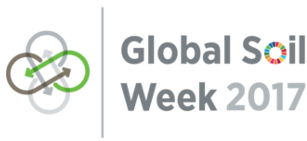In September the United Nations Member States adopted the Sustainable Development Goals (SDGs) which make up a global vision for a sustainable future. However, there are significant challenges that must be overcome before the SDGs can be implemented on a local, national, or regional level, for when the goals were formulated they treated the different environmental issues to a large degree in isolation from one another. Consequently, implementing them locally presupposes that the availability of resources such as soil is substantially larger than it really is. The recently published special issue of Current Opinion in Environmental Sustainability on “Soils in the Nexus” responds to this concern. In twelve articles, international scientists and members of the public examine the question of how discussions of soils and land resources must consider their multifarious interdependencies – their nexus – with humans and ecosystems if we are to successfully undertake a transformation into a sustainable society.

The authors of the special issue examine the question of how discussions of soils and land resources must consider their multifarious interdependencies – their nexus – with humans and ecosystems. © IASS
“The SDGs are a complex collection of ambitious goals and realizing them requires integrated strategies which take into account synergies and trade-offs from the very beginning. Using the example of natural resources such as soil and water, this special issue shows the horizontal integration between the various sectors and the vertical integration of various government and decision-making bodies that is required in order to fight poverty and achieve energy, food, water, and climate security. Without this integration and accompanying governance, it will not be possible to achieve these goals,” Alexander Müller, one of the editors, described the primary message of the volume.
The contributions investigate the challenges of implementing the SDGs at both a global and a local level. They focus particularly on the following sustainability goals: ending poverty (SDG 1), food security (SDG 2), access to affordable renewable energy (SDG 7), combating climate change (SDG 13), protecting ecosystems (SDG 15) and supporting peaceful and inclusive societies (SDG 16).

Soil plays a central role in the sustainable development goals. © Judith Rosendahl
The authors are especially interested in the significance of social and economic factors for implementing sustainable agricultural methods, reducing poverty, and achieving food security. Secure land rights for smallholders plays a central role in this. In addition to investigating how to support small-scale farming in order to address food security, topics covered in this volume include soil degradation and the loss of land and the challenges this poses for achieving the global vision of sustainable development. The identification of possible trade-offs and synergies resulting from resource use is a focus of the discussion of this nexus. The contributions include human-rights perspectives, an overview of global sustainability processes, and field studies and approaches from Malawi, Tanzania, Ethiopia, and Cuba. In order to implement the sustainable agenda by 2030, the authors argue, national strategies are needed that can be implemented in a coherent and integrated fashion at a regional level, thus allowing their transformative character to unfold.
The journal Current Opinion in Environmental Sustainability, published by Elsevier, is dedicated to publishing detailed survey articles on environmental topics of current social relevance.
Links to the special issue and individual articles by IASS researchers:
- Weigelt, J.; Janetschek, H., Müller, A. und Töpfer, K. (2015) Soils in the Nexus. Current Opinion in Environmental Sustainability, Volume 15.
- Müller, A., Janetschek, H., Weigelt, J.: Towards a governance heuristic for sustainable development.
- Weigelt, J., Müller, A., Janetschek, H., Töpfer, K.: Land and soil governance towards a transformational post-2015 Development Agenda: an overview
